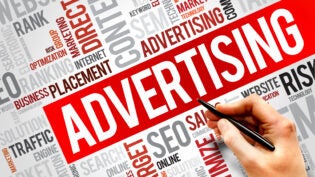“Remember that a person’s name is to that person the sweetest and most important sound in any language.” – Dale Carnegie
That truth is a cornerstone of Dale Carnegie’s timeless advice in his perennially bestselling book, How to Win Friends and Influence People. It is just as true – and important – today as when Carnegie wrote it back in 1936.
It’s evidence of how critical personalization is when you are trying to establish and grow a relationship with an individual. Probably every one of us has tossed mail directly into the garbage can that was address to “occupant” or ignored letters that begin, “To whom it may concern.”
And while addressing someone by their name is one way to personalize a message, it’s not the only way. There are other elements of our personality and behavior that we hold as “personal.” Think about a time when you’ve been driving down the freeway and zooming by dozens of billboards. Occasionally you’ll spot one that demands a second look because it’s promoting something that resonates with you; it connects with you in a personal way.
When you are marketing your product or service, it’s smart to use as many personalization strategies as possible. I understand that unless you have very deep pockets, you won’t be able to take advantage of every available personalization strategy, but you should experiment so you can find the ones that are most cost effective for your business.
Below are five specific personalization tactics and broader categories of personalization you should consider as you’re fine tuning your marketing this year.
Name dropping
Let’s start with Dale Carnegie’s axiom: Use the names of your customers and prospects whenever it is possible. For example, email marketing software today almost always gives you the ability to insert a name field into the body of the email as well as in the subject line. Further, train your customer service team and others to respectfully address people by their names; when customers feel that you are taking them seriously, they will in turn feel that you are taking their problems or questions seriously. This strategy is low- to no-cost, so everyone should be using it.
Geotargeting
Personalization can be achieved via location – don’t you get something of a warm and fuzzy feeling when you meet someone from your area? Location can be used, for example, if you’re a new or used car dealer located in an area where there are many other car dealers. It would be a great strategy to get your marketing message or ad to customers when they are actually in or near your location. Many advertising platforms today, including Google’s AdWords, allow you to define a location where your ads will be displayed. Offering a discount when prospects cross into your territory could be a winning strategy.
Retargeting
In some ways, this is the online digital version of geotargeting. When people have shown personal interest in your product or service via their online browsing history you can serve them follow-up ads. Dan Hecht has written a great beginner’s guide to retargeting over on the Hubspot blog, if you need to get up to speed on the variations and how it is implemented.
Conditional responses
Services like Infusionsoft allow you to personalize your communications to your audience based on their behavior. For example, when someone clicks on “Link A” it could move that individual into “Series X” of follow-up emails or offers that address the specific area of interest represented by Link A. Clicking on Link B would trigger a different follow-up email series. By the way, I know that Infusionsoft can be expensive for some small business owners. However, many standard email service providers have autoresponders today that can provide similar functionality.
Big data
Unless you’ve been living under a rock, you know that a myriad of companies are vacuuming up our online habits, compiling them, and then using them to market to us. For example, if you’ve identified yourself as a fan of Adelle on Facebook, that tidbit of information is in a database somewhere. Companies like Flybits pull together all kinds of data – including your location, your online habits, your likes and dislikes, and the social media platforms you frequent – and package it in formats that allow you to leverage it in your marketing campaigns.
CRM
Customer Relationship Management (CRM) systems, when used properly, can help you personalize your relationships with your customers and prospects. To be effectively used to personalize your contacts, you need to have the right fields – including ample space to include notes – and be sure everyone is actually using the system. Knowing someone’s history with your company when you make a new sales contact or customer service contact is extremely potent personalization.
Implementing these six personalization strategies will, over time, grow your business and give you advantages over your competitors. Become familiar with each one. Take them out for a test drive and find the ones that work best for you.












